Related News
National Waste Policy
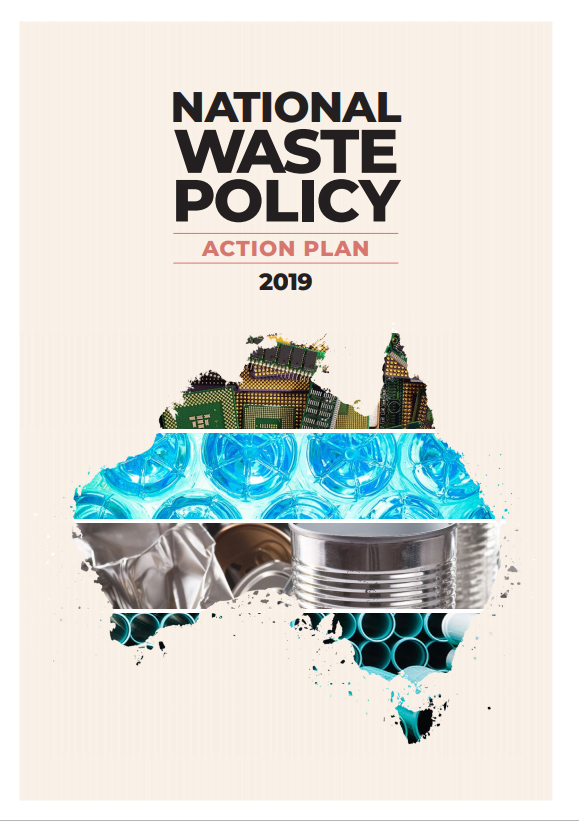
Created by the Federal Government in conjunction with states and territories, the National Waste Policy provides a national framework for waste and resource recovery in Australia. It outlines roles and responsibilities for collective action by businesses, governments, communities and individuals.
The first National Waste Policy was published in 2009. An updated National Waste Policy was published in 2018.
National Waste Policy Action Plan
On 8 November, the National Action Plan was released which sets targets and actions to implement the 2018 National Waste Policy.
These targets and actions include:
- ban the export of waste plastic, paper, glass and tyres, commencing in the second half of 2020
- reduce total waste generated in Australia by 10% per person by 2030
- 80% average recovery rate from all waste streams by 2030
- significantly increase the use of recycled content by governments and industry
- phase out problematic and unnecessary plastics by 2025
- halve the amount of organic waste sent to landfill by 2030
- make comprehensive, economy-wide and timely data publicly available to support better consumer, investment and policy decisions.
Sources
Read official documents from the Australian Government, Department of the Environment and Energy:
-
POTENTIAL IMPACTS ON RETAILERS
The National Retail Association is actively working with industry, government and community stakeholders on sustainability initiatives, including national waste policies.
The NRA supports positive initiatives to improve environmental impact across the retail industry, however these changes must be:
- nationally consistent
- fair for all retailers regardless of size
- carefully considered and researched
- commercially viable and realistic
- supported by retailer & consumer education
- supported by investment in Australian infrastructure & innovation
We applaud the Australian Government, the states/territories, and local government involved in the National Waste Policy Action Plan for the recognition of the complex challenges and for launching a national pathway for government, industry and consumers.
A snapshot of current opportunities and challenges for the retail and food service industry:
-
Recycled content
Recycled content
Retailers and businesses are keen to use more recycled content in products and packaging, but domestic supply, infrastructure and standards are currently limited.
- Retailers and brand owners in Australia are keen to transition to recycled content where possible and safe to do so.

- However we need access to affordable, high quality materials made of recycled content here in Australia.
- Currently, most materials made from recycled content are significantly more expensive than those made from virgin content, and we need commercially viable solutions which customers will embrace.
- We also need traceability mechanisms and standards to ensure recycled content is clean, safe to use and verifiable.
- Standards must consider international supply chains so retailers can determine the compliance of international suppliers and also align with other Australian standards such as food safety.
- We support increased use of recycled content by governments through procurement policies as this would help build infrastructure and investment in the domestic market.
- Retailers and brand owners in Australia are keen to transition to recycled content where possible and safe to do so.
-
Food waste
Food waste
Both businesses and consumers need to start implementing strategies to reduce food waste, but knowledge of this issue is very low in Australia, impacting incentives and ability to change.
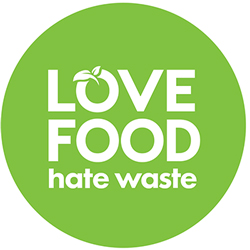
- We support the Fight Food Waste campaign and the national target to halve food waste by 2030, however we express concern given the EU achieved 28% reduction in 10 years with more extensive organic recycling infrastructure in place.
- Many retailers and brand owners have been actively working on reducing food loss and waste across their supply chain for the past decade.
- We strongly support the need for greater consumer and industry education on food waste as the issues and solutions are complex and will take time and innovation. For example, much of the plastic packaging used in fresh produce has been reducing food waste through extended shelf life and transport protection. Alternatives need to balance food waste and packaging goals to create net positive outcomes.
- We strongly support Action Point 6.4 for local government to deliver FOGO collection to households and businesses though costs must be minimised to maintain equity.
- The NRA is actively working with Fight Food Waste CRC and Food Innovation Australia Limited (FIAL) to support industry-led action. More info: contact policy@nra.net.au
-
Packaging
Packaging
Businesses are facing increased pressure to reduce plastic packaging, but some plastic has a purpose, is recyclable, and alternatives need to provide realistic not tokenistic solutions.
- Many retailers and brand owners are signatories to the Australian Packaging Covenant (APCO) and are actively working to achieve 100% of packaging to be reusable, recyclable or compostable by 2025.
- However consumers and government must understand that challenges are complex and must be practical, commercially-viable and safe.
- The NRA is working with APCO and related stakeholders to represent retailer perspectives and support practical, long-term solutions. More info: contact policy@nra.net.au
-
Single-Use Plastics
Single-Use Plastics
Single-use plastics in takeaway food are currently the subject of many discussions, industry research, and potential regulatory interventions, but alternatives remain limited, untested and challenging.
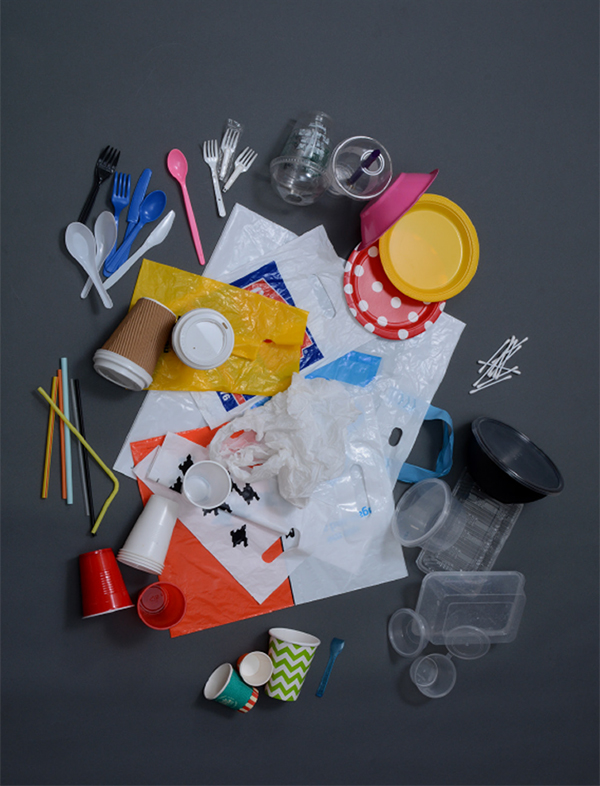
Source: https://www.greenindustries.sa.gov.au/ - Single-Use Plastic Items commonly include plastic cutlery, plates, straws, takeaway food containers, coffee cups…
- Business needs clear definitions of problematic, unnecessary single-use plastics, support to innovate, and time to trial options as many alternatives are still cutting edge and untested.
- We need verifiable standards for retailers & brand owners to have confidence in ‘green’ alternatives.
- The optimal solutions need to create net public benefit and consider wide-reaching impacts.
- Some challenges include:
- Maintaining food safety
- Barrier bags, containers, and tableware must be fit-for-purpose and have food safety as the highest concern.
- For example, raw chicken or seafood needs a food-safe barrier to avoid dangerous contamination of other products.
- Consumption behaviour
- While most businesses can control consumer waste generated in-store, 70% of takeaway food and drink is consumed outside the store (ie. consumer controls disposal and therefore must have access to appropriate recovery systems which currently vary council-by-council).
- Handling hot and cold products
- Containers and tableware that contain hot or cold food must be fit-for-purpose eg. hot soup or curry in a takeaway container that won’t burn the customer or disintegrate before they eat it.
- Current solutions for disposable items (eg. coffee cups) have limitations as they rely on return-to-store, singular stream collection or commercial composting. Uptake of reusable cups is promising but the vast majority of consumers still use disposable cups.
- Assessing long-term impacts
- More research is needed to ensure that today’s solutions don’t create unintended (or worse) impacts on the environment in the future.
- eg. ‘Natural’ alternatives such as bamboo and wood may create more methane, require commercial composting and may result in land clearing or substitution for food crops.
- eg. Oxo-degradable plastics have been presented as “green” solutions in the past but turns out that they’re worse as they break down into microplastics.
- The NRA are working with government at federal, state and local levels, environment groups and related stakeholders. More info: contact policy@nra.net.au
- Maintaining food safety
-
Recycling
Recycling
Businesses are keen to ensure product and packaging waste is recyclable but are finding it difficult to design for recyclability when recycling processes vary in every council area and consumer knowledge is low.
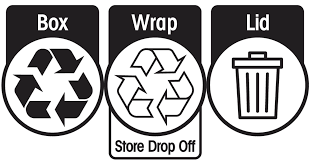
- Recent research suggests that a high proportion of consumers still sort their recycling incorrectly, increasing contamination and the amount diverted to landfill.
- We support the national target to achieve 70% of Australia’s plastic packaging to be recycled or composted by 2025 but given the current plastic recycling rate is at 16%, essential steps are necessary:
- Widespread adoption of the Australasian Recycling Label (ARL) to ensure consumers have consistent instructions on how to dispose of their waste
- National mandated standards for kerbside collection programs so consumers gain confidence in sorting waste and that their waste is being recycled
- Expand and invest in opportunities to recycle soft plastics
- Time to innovate tested alternatives to plastic that don’t create worse impacts
- Widespread consumer and business education programs
- Support markets for goods that avoid waste or contain recycled materials
-
Product Stewardship
Product stewardship
Product stewardship schemes are increasing recovery of particular items but an unconsolidated model (one scheme per product type) is unsustainable for business and impractical for consumers.
- Product stewardship schemes must be practical, cost-effective and feasible without creating significant burden on businesses and significant costs to consumers.
- It is not realistic to expect consumers to return every product to a different store or designated point, and it is not practical for retailer to take back stock into retail stores as space, hygiene and logistical issues are still unresolved.
- We are concerned that the model of ‘one scheme per product type’ is not viable in the long-term.
- Some innovation in reverse logistics and digital platforms are promising, but work needs to be done to harmonise and resolve product stewardship challenges.
- More info: contact policy@nra.net.au
-
Consumer and business education
Consumer and business education
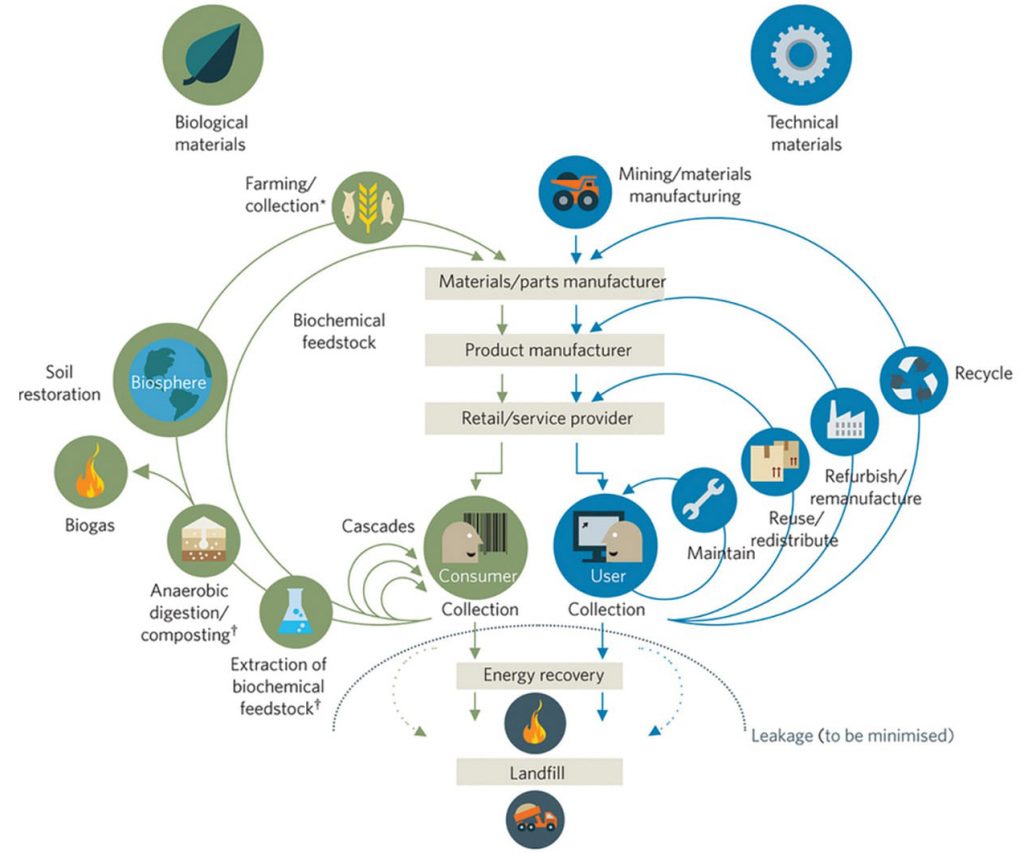
Businesses are individually investing time and resources into sustainable change and many consumers are becoming aware of their ability to create impact, but we all need consistent, practical information, resources and support.
- Both consumers and businesses need more consistent and comprehensive data, information and resources to tackle waste.
- eg. Recent research indicates that most people do not know the difference between ‘degradable’, ‘biodegradable’, ‘home compostable’ and ‘commercially compostable’.
- Many businesses, especially small or independent businesses, have little time or money to spend researching such complex issues and solutions.
- Retailers are concerned that education of the consumer will be left to retailers and their teams. Government-supported consumer education programs at a state and national level are essential.
- There needs to be comprehensive, nationally-consistent support and resources to help businesses and consumers make informed decisions.
- More info: contact policy@nra.net.au
Contact Us

David Stout

